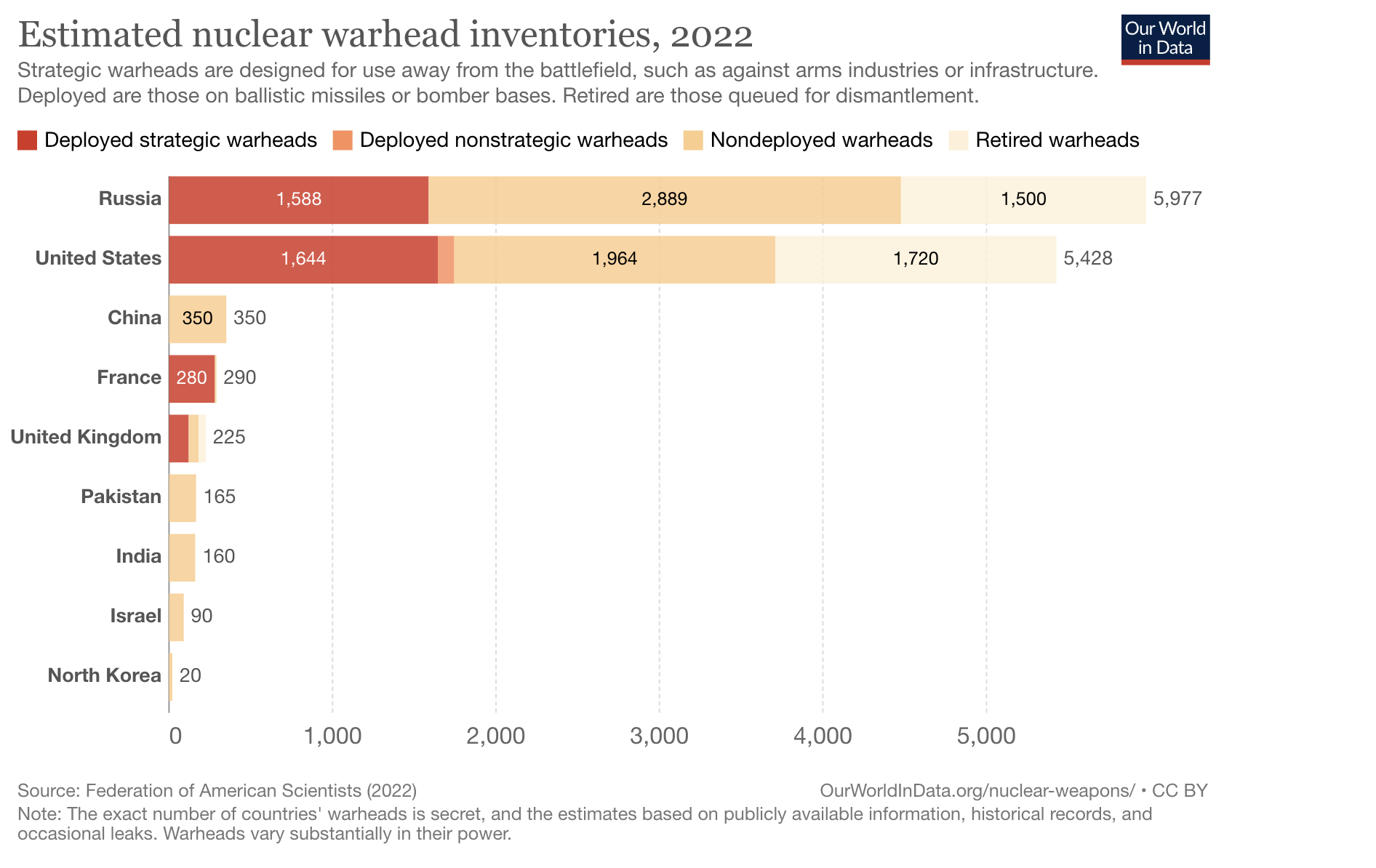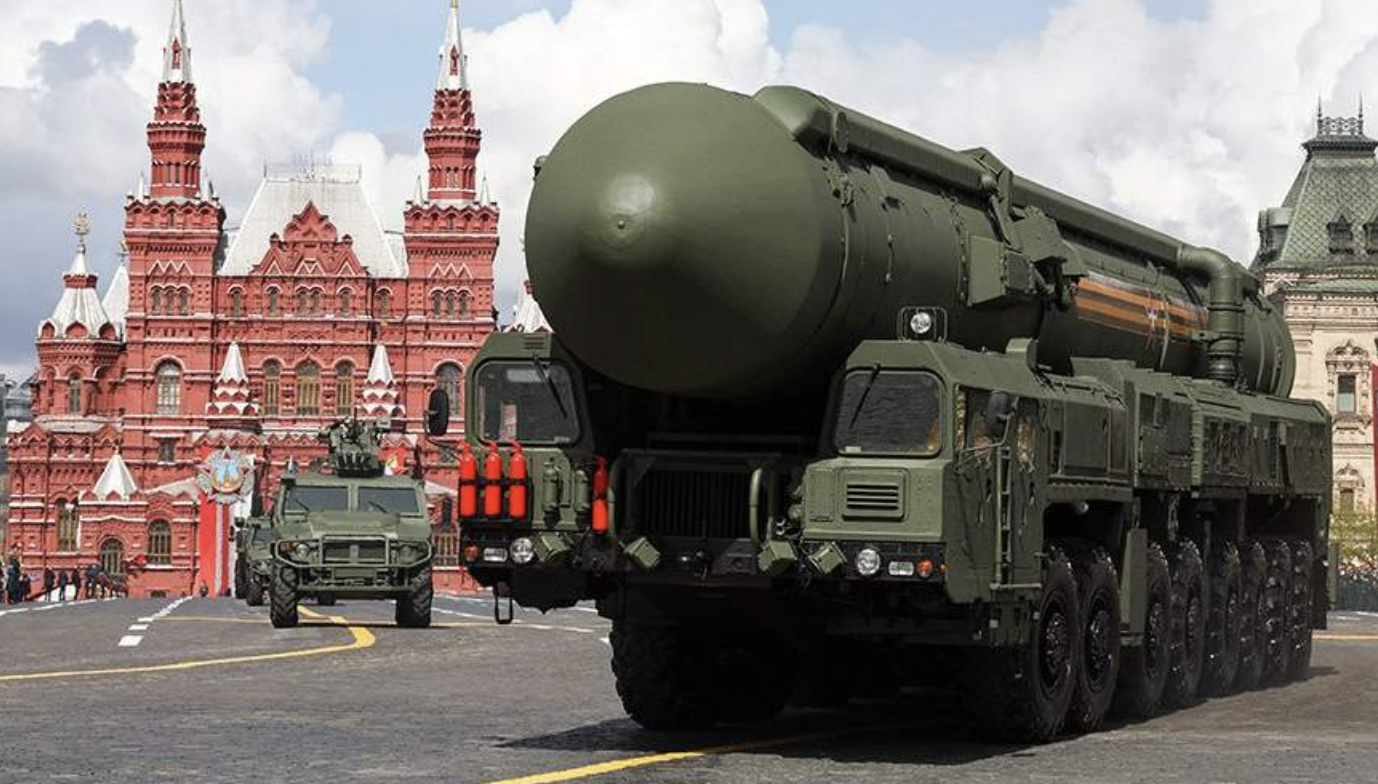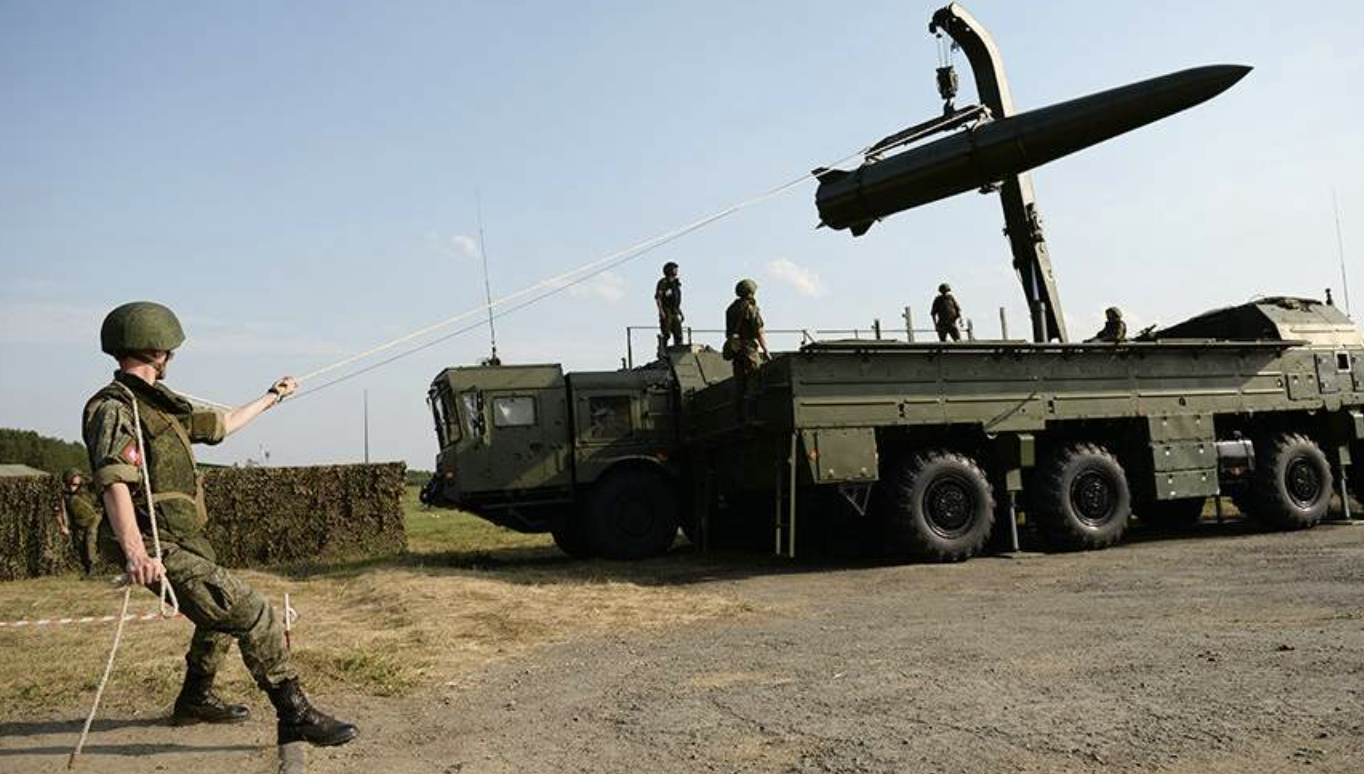Russian President Vladimir Putin announced the construction of a storage facility for tactical nuclear weapons in Belarus, after which Kiev demanded to convene an emergency meeting of the UN Security Council. Against this background, the head of EU diplomacy, Josep Borrell, said that in the event of the deployment of nuclear weapons in Belarus, the EU would impose new sanctions. The Insider asked nuclear security experts to explain what threats Putin's decision poses.
Mariana Budzherin, senior researcher at the Atomic Control Project at the Belfer Center:
“Russia's decision to deploy nuclear weapons in Belarus is a continuation of the tactic of saber-rattling in order to cause a nuclear alarm in the West. From the point of view of military utility, the deployment of Russian nuclear weapons in Belarus does not change anything. Russia has many bases and delivery systems for nuclear weapons on its own territory, some of which are very close to the Ukrainian border and can perform the same task as those located in Belarus. So this step is purely political. It is needed in order to:
1) bring a nuclear dimension to this war and make the West worry about nuclear escalation in the hope that the West will lose its nerve and ask, or rather force Ukraine to ask for peace on terms acceptable to Russia;
2) demonstrate that Russia has the right to do what the United States does, including the deployment of tactical nuclear weapons in allied countries.
With regard to the latter, the United States has indeed deployed its tactical nuclear weapons in allied European NATO countries and in Turkey. As long as it remains under US control—just as weapons in Belarus will remain under Russian control—such deployment is not prohibited by the Treaty on the Non-Proliferation of Nuclear Weapons (NPT). However, since 2015, Russia has been talking a lot about the US deployment of nuclear weapons in Europe, claiming that they violate the NPT. Moreover, the recent statement by Putin and Xi Jinping refers to the deployment of nuclear weapons outside the national territory, which clearly refers to the US and its allies. So there is obvious hypocrisy here: first, Russia claims that such a deployment violates the NPT (it is not), and condemns it together with China, and then changes its position to the diametrically opposite one and announces its own deployment.
It must be remembered that Putin announced only plans to deploy tactical nuclear weapons in Belarus, which will not happen until June 1, when the construction of a special storage facility in Belarus is completed. So there are no nuclear weapons in Belarus yet. Even after the construction of the facility is completed, it may still be some time before weapons are deployed.”

Dr. Steven Herzog, Senior Research Fellow at the ETH Zurich Center for Security Research:
“Putin's statement about the transfer of Russian tactical nuclear weapons to Belarus, of course, causes concern. The prospect of deploying nuclear weapons in regions close to conflict zones increases the risks of escalation, the use of nuclear weapons and misinterpretation of events. Although there is no evidence so far that the Kremlin has moved any of its arsenals to Belarus. But I expect that in the near and medium term there will be reports from intelligence analysts based on open source data tracking the possible movement of warheads from Russia to Belarus.
Putin noted that Russia would seek to duplicate NATO's nuclear sharing agreements, under which US tactical nuclear weapons are deployed in Belgium, Germany, Italy, the Netherlands and Turkey. He was referring to American B-61 unguided bombs that could be delivered by dual-use Allied aircraft. There is a precedent for such actions by NATO.
Russia's actions did not come as a surprise. In February 2022, Lukashenko initiated changes to the Belarusian constitution to legalize the sharing of nuclear weapons. Similarly, Russia has been clear for months that it is helping Belarus modify its aircraft to deliver Russian bombs and training Belarusian personnel for such tasks. And in the past, the Kremlin has made it clear that it will give Belarus Iskander missiles with a nuclear charge.”

Pavel Podvig, Research Fellow, United Nations Institute for Disarmament Studies:
“There is no talk about placing charges on the territory of Belarus yet. So far, it has been stated that the Belarusian military will be trained to handle systems that can use nuclear weapons. A new element has been added – the construction of a storage facility on the territory of Belarus will be completed. At the same time, it is not entirely clear how realistic it is to finish it by July, because the storage for nuclear warheads is a serious weapon.
If the storage is built, it is not obvious that it will be filled with nuclear warheads. In any case, you need to understand that the maintenance of warheads will be completely under the control of the 12th Main Directorate of the Russian Armed Forces. It is impossible to imagine the circumstances under which the Belarusian military will have real access to nuclear warheads. There will be exercises and drills using training mock-ups, this is a normal practice, as the Russian president noted, it has long been common in NATO.
I don't think this is a reaction to the events in Ukraine. Back in June, cooperation was announced, training the Belarusian military and transferring them systems that can use nuclear weapons. What we see today is a continuation of that story. Apparently, we are talking about the processes of integration and cooperation between Russia and Belarus. I hope that it will not come to the deployment and movement of nuclear charges on the territory of Belarus, because the creation of a safe storage facility that can receive these charges is a serious undertaking. While nuclear weapons are in storage, even if they are located on the territory of Belarus, there is no change in the level of danger. Of course, this is not a positive development of events, there is nothing good in this step, but this is a political signal, and it should be taken that way.
If this storage facility is built, and then tactical nuclear weapons are placed there, which will be under the control of the Russian military, there will formally be no violation of the NPT. This is exactly what the president says is supposed to be done, and this is exactly what NATO has done – American warheads are always under the control of the United States. It should be noted that despite this, Russia, starting somewhere in the mid-2010s, insisted that American practice was contrary to the NPT. Now, obviously, they decided that it does not contradict. If you simply store a weapon, then this does not mean its transfer, the main thing is “do not give it into your hands.” During the negotiations on the NPT, this was agreed, mainly at the insistence of the United States, so now it is difficult to change the wording.

Lukasz Kulesa, Acting Head of the Research and Analytical Department of the Polish Institute of International Relations
“It is surprising how Putin announced the decision on the nuclear storage: it was done on a day off during an interview, and not in the format of a joint official statement with Alexander Lukashenko. The decision itself is a logical continuation of previous statements about the modification of Belarusian aircraft to carry nuclear weapons and about the deployment of Iskander nuclear systems in Belarus.
At the political level, it is about strengthening Russia's control over Belarus and that Russia will not allow the fall of the Belarusian regime. Also, the statement is intended to reinforce the propaganda narrative that both countries must be ready to defend against NATO, and nuclear weapons will play an important role from the very beginning of any war.
The deployment of nuclear weapons in Belarus should be taken into account by NATO in military planning, but this will not radically change the situation – Russia already has many means to strike at our territory with the help of tactical nuclear weapons. This can be considered an escalation and also an indicator of how much Russia is afraid of “losing” Belarus, given the opposition sentiments inside the country directed against Lukashenka and against Belarus’ participation in the war.”
Russian President Vladimir Putin regularly makes statements about nuclear weapons, after the outbreak of war in Ukraine, he once again said that Russia has "various means of destruction." According to him, the West is “pushing Kyiv to transfer military operations” to Russian territory and is using “nuclear blackmail”. Putin also said that in the event of a threat, Moscow would use "every means at its disposal." Also, the president, announcing Russia's "suspension" of START ( only withdrawal from the Treaty is officially envisaged, there is no wording "suspension" in it – approx. The Insider ), once again reminded that the United States is developing new types of nuclear weapons. If the United States tests new types of nuclear weapons, Russia will do the same, he stressed. Former German chancellor Angela Merkel believes that Vladimir Putin's nuclear threats should be taken seriously, she said in September 2022.


